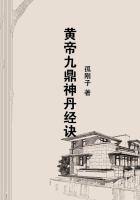The memory has been preserved of a time when the same was the case in Corinth and Thebes. It is certain that the power ofabsolutely devising property was not originally recognized as a natural right." "Before the law of the XII Tables we have nolegal text either forbidding or allowing testamentary disposition, but the language preserves the remembrance of a time whenit was not known; for it calls the son lueres suus et necessarius ." (60) Even after testamentary disposition was allowed, thewish of the testator had to be ratified by the sovereign authority, that is, by the people assembled in the curies, under thepresidency of the pontiff. The most ancient form of testament is that comitiis calatis . In Germany the testament wasunknown, nullum testamentum ; (61) and the barbarians only made use of it after the conquest, under the influence of Romanideas and of the church, which found in it an abundant source of wealth. (62) "The best authorities," says Sir H. Maine, "agreethat there is no trace of it in those parts of their written codes which comprise the customs practised by them in their originalseats, and in their subsequent settlements on the edge of the Roman Empire." (63)Originally the clan, or village, is the collective body owning the soil; later on, it is the family, which has all the characteristicsof a perpetual corporation. The, father of the family is merely the administrator of the patrimony: when he dies, he isreplaced by another administrator. There is no place for the testament, nor even for individual succession. We shall seepresently that this is still the case among the family communities of modern Servia. Such was also the law everywhere wherethese communities have existed; and, probably, every nation has passed through the system.
So far from being a natural right, testamentary disposition is a novelty in the history of law. As Sir H. Maine remarks, theRomans invented it. The testament was not at first conceived of as a means of distributing wealth or effecting the division ofproperty, but only for better regulating the interests of the family.
Customary law, and the great jurists, who have interpreted its spirit to us, are equally hostile to the testament. Thefundamental maxim of the customary law on this point is, Institution d'héritier n'a point lieu . Legacies were but tolerated.
The indulgence of the law, says Bourjon, allows a man at his death a sort of empire over his property; but the law is wiserthan the individual. Therefore he shall not interfere with the order established by it. Human wishes should not trouble thedivine order, says Domat. All customs impose more or less limitation on the right of testamentary disposition.
1. Römische Alterthümer (1856), I p. 108.
2. La Cité antique (new Edition), p. 67.
3. La Cité antique , p. 63. M. Fustel de Conlanges shews decisively that the dwelling-house and the land round it, containingthe family tomb and altar, were private property; but this is also the case in Russia, Java, and the Germanicmark,everywhere, in fact, where there is community of the soil, this latter system being only applied to the arable, forest,and pasture land. The heredium, or domain transmissible by hereditary descent, prevailed to the same extent in Germany. AtRome, it is beyond dispute that private property was very limited in comparison with the common territory, or agerpublicus . See Mainz, Cours de droit romain , I 119, 158.
4. The author has borrowed considerably from M. Viollet's excellent work published in the Bibliothèque de l'Ecole desChartes . It may be well to transcribe the note at the beginning of this publication, as shewing how, working from differentpoints of view, and independently, the author as an economist, and M. Violist as an archaeologist arrived at the sameconclusions In this note, M. Viollet says "A fortnight ago I handed to our editing committee the first two chapters of the book now offered to the public, when thereappeared in the Revue des Deux-Mondes (July 1, 1872) the first part of a study by M. de Laveleye on Primitive Property. M.
de Laveleye's views are identical with mine; and for a moment I hesitated whether I ought to carry out my intention ofpublishing.
"I decided in favour of doing so, because, although we agree in our conclusions, there in little chance of our always selectingthe same proofs. This agreement, moreover, if it existed, would render the argument more striking. I will add, that the thirdchapter of this essay is probably quite without the outline which M. de Laveleye seems to have traced for himself."M Viollet did collect a great many facts which had passed unnoticed, and which the author here reproduces in support of hisposition.
5. Cursus der Institut . (1841), I p. 129134, II p. 581.
6. Mommsen, History of Rome , Bk. I. c. xi. p. 160.
7. Cicero ( de Rep . ii. 9, 14, comp. Plutarch, Q. . Rom . xv.) states: Tum (in the time of Romulus) erat res in pecore etlocorum pssessionibus, ex quo pecuniosi et locupletes vocabantur.Numa primum agros, quos bello Romulus ceperat,divisit viritim civibus . In like manner Dionysius represents Romulus as dividing the land into thirty curial districts, and Numaas establishing boundary-stones, and introducing the festival of the Terminalia (i. 7, 2, 74; and thence Plutarch, Numa , 16).
8. Mommsen, History of Rome , Bk. I. c. xiii. p. 193195.
9. Strabo, I. vii. c. vi. ?7.
10. Diodorus, Bibl. histor . v. 9.
11. Porphyri Pythagorae vita, edit. Didot, Parisiis, 1850, p. 91.
12. Politics , 1. xv. c. 3.
13. Politics , 1. ii c. 3.
14. Bibl. Histor . 1. v. c. 44.
15. Bibl. Hist . v. 41.
16. Strabo and modem authors believe Panchaia to be a mere fabulous isle, and treat the subject as a fiction of Diodorus.
This may be the case; but in describing the golden age, Diodorus was evidently describing the features of the agrarian systemof the early ages. See Evhémère by B. de Block, p. 51.
17. Strabo, 1. vii. c. 6, ?7.















